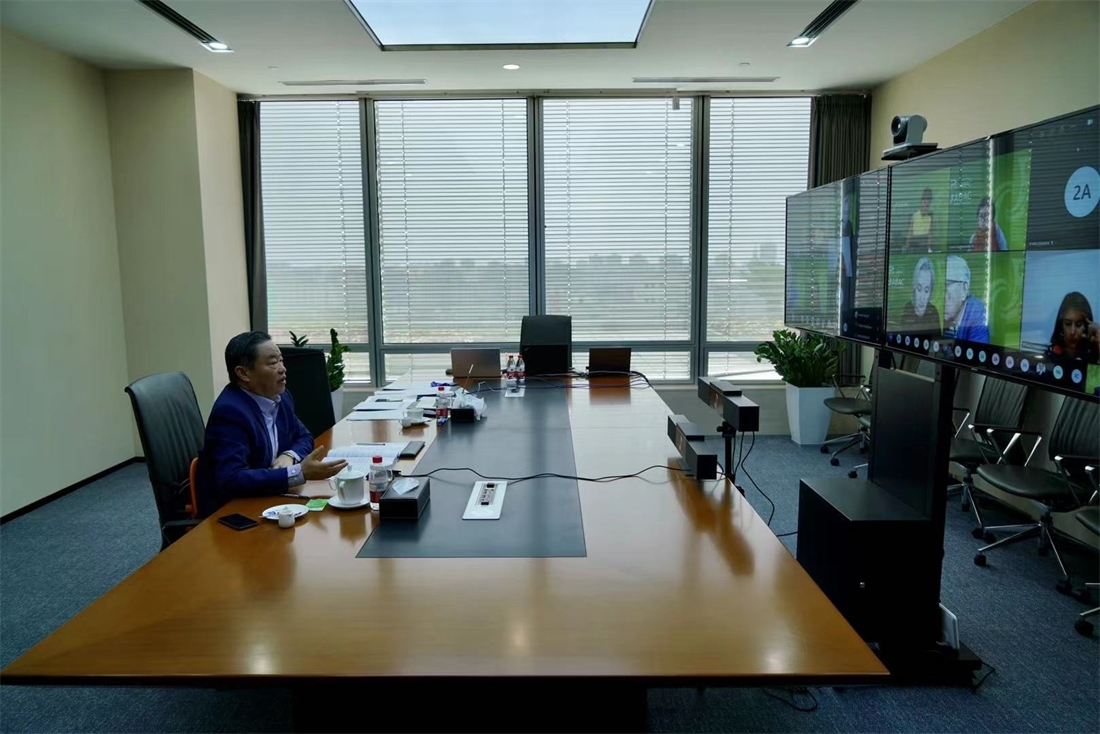Chairman Frank Ning Attends the Second ABAC Plenary Meeting in 2021 |
| Date:2021-05-11 Source:Sinochem Holdings |
|
Mr. Frank Ning, Chairman of Sinochem Holdings and Secretary of the Party Group, attended the second virtual plenary meeting of the APEC Business Advisory Council (ABAC) on May 11 from Beijing in his capacity as Chair of Sustainability Working Group (SWG). During the meeting, Mr. Frank Ning highlighted the SWG’s work progress and upcoming plans and goals, and discussed topics such as global economic recovery and mechanisms for addressing climate change. Over 100 ABAC members, alternate members and staffers from 21 APEC economies attended the meeting.
Regarding progress of the SWG, Mr. Frank Ning mentioned the three task forces had held five meetings under the guidance of the whole ABAC Work Program, with all works proceeding steadily. The Climate Leadership task force shared relevant business practices in APEC economies and discussed climate leadership principles for business. The Renewable Energy task force focused on the Roadmap towards Carbon Neutrality, Trade and Investment Liberalization of goods and services related to renewable energy, and energy resilience. The Food System task force focused on the APEC Food Security Roadmap Towards 2030, making better policies for food system and sharing best practices by Sinochem Holdings and Syngenta in agricultural digitalization. For next step, Mr. Frank Ning said that the SWG would center on the deliverables – Climate Leadership Principles for Business, Framework for Trade and Investments in renewable energy, and Inputs for Food Security Roadmap, to proceed with the work. During discussions about the global economic outlook, Mr. Frank Ning pointed out that the Chinese economy had achieved rapid recovery and growth in the first quarter of 2021 and is expected to maintain strong growth momentum in the second quarter. In addition, during discussions on the draft Letter to APEC Ministers Responsible for Trade, he noted that there is still argument over “carbon leakage”. The concept and related carbon border adjustment mechanisms may disregard different responsibilities and capabilities of developed and developing economies in addressing climate change, and could pose new protectionist measures. He, therefore, stressed the need of avoiding conceptual ambiguity in the report. He also proposed that Asia-Pacific economies actively implement the goals, principles and requirements of the United Nations Framework Convention on Climate Change (UNFCCC) and the Paris Agreement, promote trade and investment liberalization and facilitation by reducing barriers and cutting tariffs, as well as implement fair, reasonable but differentiated measures to address climate change based on historical responsibilities, national conditions and respective capabilities of each economy. The aforementioned were accepted by the ABAC Chair. |
 Mobile
Mobile






